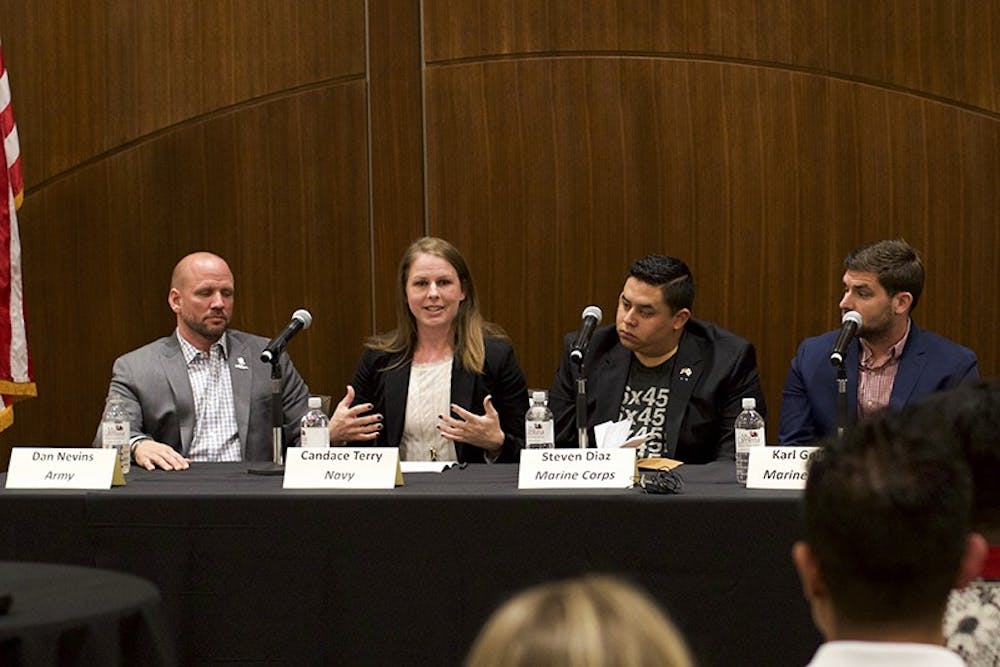The My Carolina Alumni Association tackled a difficult issue facing our military and all sufferers of trauma Wednesday, hosting its PTSD: Shattering the Perception panel. The panel included both male and female veterans living with PTSD, or Post Traumatic Stress Disorder, and aimed to promote awareness of its impact.
The veterans took time to talk about their personal experiences with PTSD, some outlining their individual traumas, and some choosing to focus on advocacy and education. One of the vets, Dan Nevins, chose to integrate his story into his profession after he was injured in Iraq. Today, Nevins is a motivational speaker who helps other veterans like himself heal from their physical and emotional wounds.
While the panelists’ experiences were different, they shared a similar message, coming back again and again to the idea that just because something traumatic happens doesn’t mean that event has to consume your life. They also touched on how they’ve kept trauma from overtaking them, with everything from storytelling to therapy to yoga.
Dr. Aubrey Sejuit, a veteran and USC alumna, moderated the panel. Sejuit is a licensed therapist and hopes discussing PTSD will help dispel the stigma surrounding it as a mental illness.
“A lot of the times we see in the media that PTSD is associated with someone who’s going to snap and really just become violent. That’s what we see when we think of PTSD, and that’s not exactly what it is. I’m hoping that this panel is going to really speak to there’s other issues people are dealing with,” Sejuit said.
The panel also included student veterans’ voices like that of Candace Terry, a U.S. Navy Veteran and president of the Student Veterans Association. Terry wants to utilize the panel to help normalize PTSD and the public’s perception of it.
“We’re showing how people with PTSD live on a daily basis. We go out and we do the same things that everyone else does. And although we have maybe a stronger sense of anxiety and stress and what not, it’s just not any different,” Terry said.
The National Institute of Mental Health describes Post Traumatic Stress Disorder as "a disorder that develops in some people who have experienced a shocking, scary, or dangerous event.” Many risk factors contribute to the development of PTSD, such as living through trauma or seeing other people get hurt, events that disproportionately impact veterans.
Experiencing trauma and subsequently suffering from PTSD is not a rare occurence. According to the National Center for PTSD and the U.S. Department of Veterans Affairs, about 7 out of 100 people will have PTSD at some point in their lives. The number is even higher within the military: out of every 100 veterans who served in Operation Iraqi Freedom or Operation Enduring Freedom, 11-20 have PTSD in a given year.
While PTSD can be life-altering, it doesn’t have to control one’s future, a point many of the panelists stressed.
“It absolutely gets easier with time, the more time and distance there is from the traumatic event the easier it is to go on, you know, go through the day to day processes,” Terry said. “I live a very normal life.”

